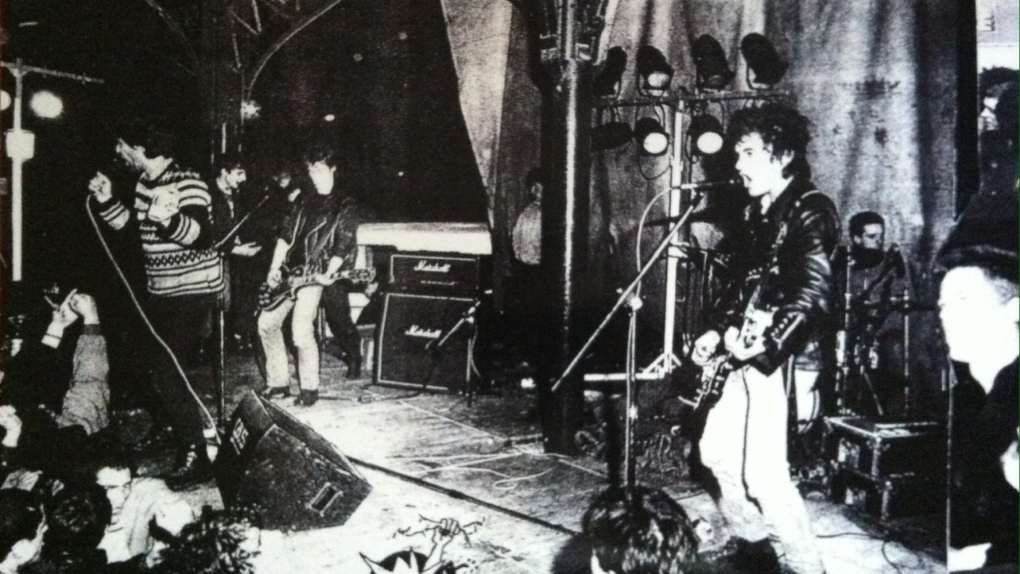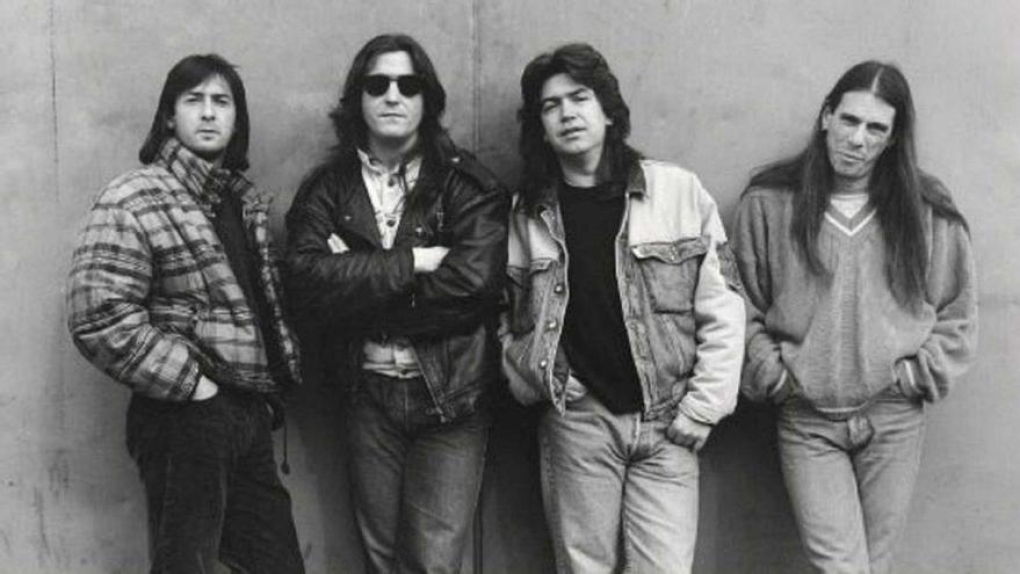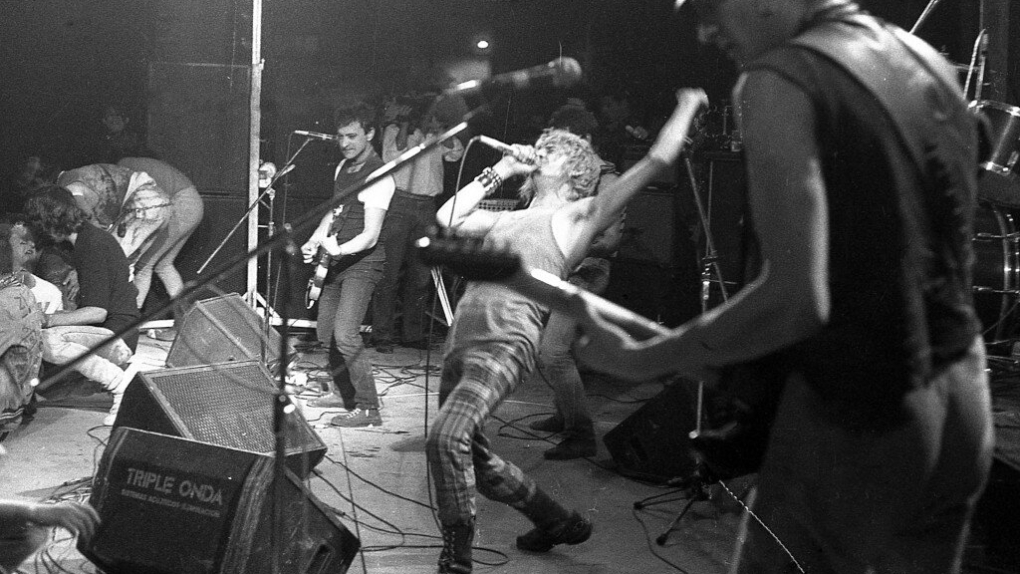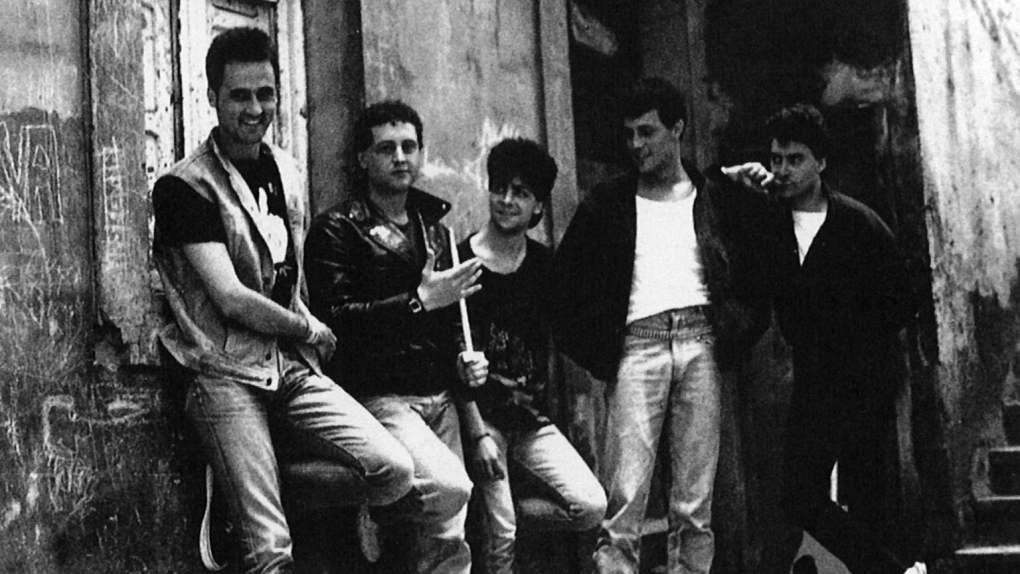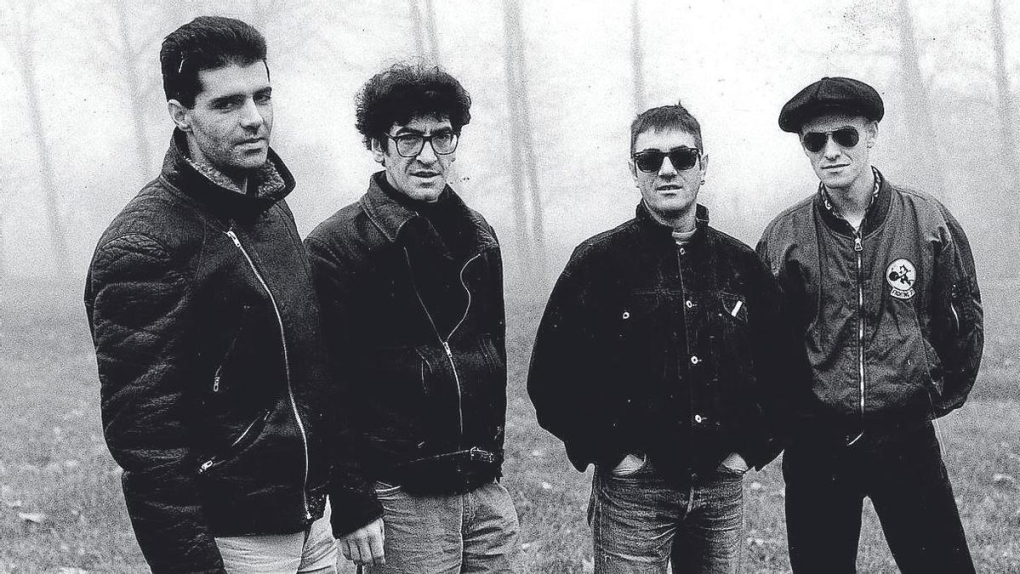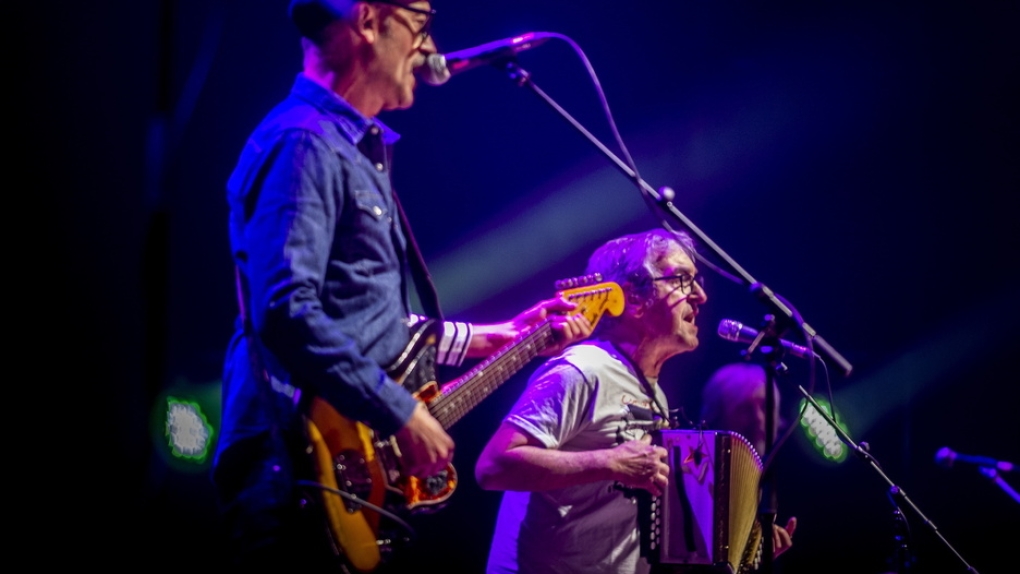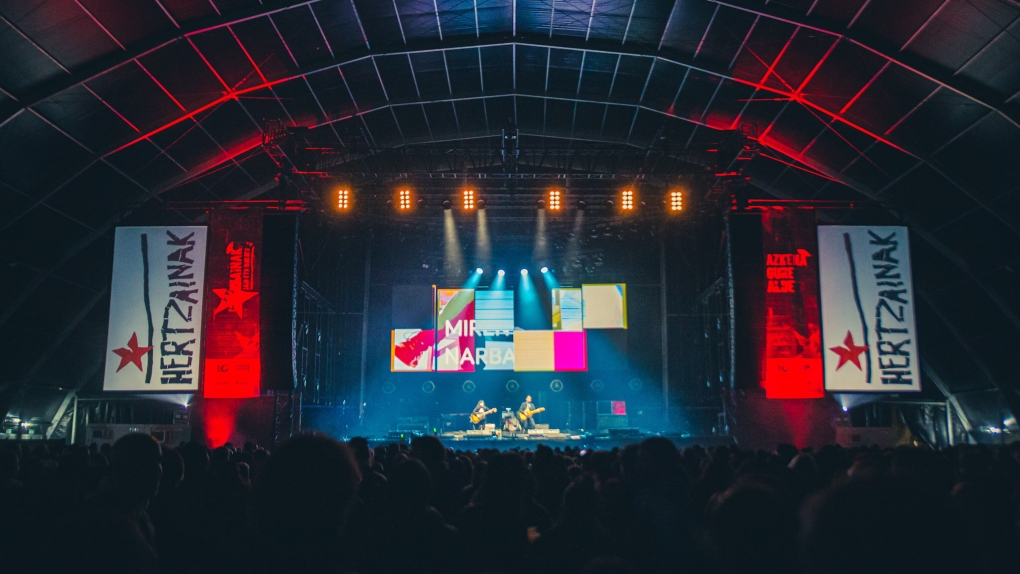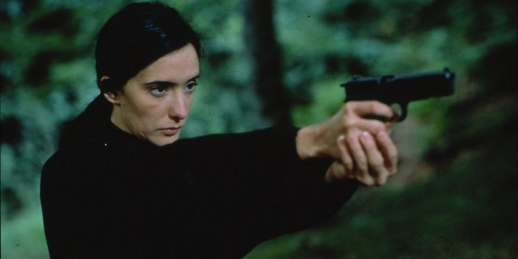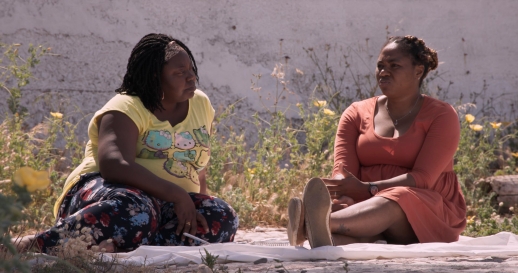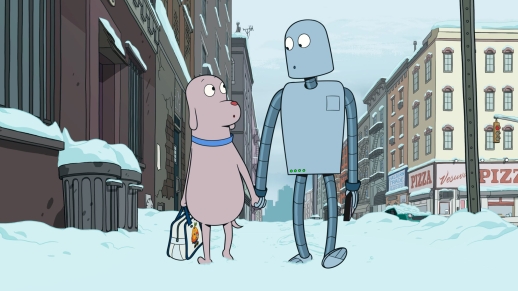From historic pop and rock figures to a brilliant generation of young musicians breaking new ground: more and more bands and solo performers in the Basque Country are selling out large venues.
Basque musicians storm the stage
14 Jun 2024In the transition from the 1980s to 90s, the distance between the two banks of the Nervión estuary – 160 metres – separated two worlds in the greater Bilbao area. Clustered together on the left bank were the popular, working-class towns of Barakaldo, Sestao, Portugalete and Santurtzi; on the right bank, the prosperous, bourgeois Getxo, Leioa, Erandio and Berango. And as a silent witness, the Portugalete transporter bridge, linking the two shores since 1893. Discontent and anger caused by the economic and social crisis unleashed rage against a broken system, with bands such as Eskorbuto, Zarama and Parabellum. Enter Basque Radical Rock: exciting, fast-paced, music of the counterculture.
On the prosperous right bank, however, bands with a more hedonistic character emerged: El Inquilino Comunista, Los Clavos, Lord Sickness … The profusion of alternative bands led to what became known as Getxo Sound. The documentary ‘160 metros: una historia del rock en Bizkaia’ (Álvaro Fierro and Joseba Gorordo, 2013) revealed a complex and multifaceted reality that marked several generations and resonated throughout the Basque Country. Around the same time, Elena López Aguirre, journalist and member of the Vitoria-Gasteiz reggae band Potato, published a seminal book: ‘Historia del Rock Vasco-Edozein Herriko Jaixetan’ (Ediciones Aiainai). Her book was an in-depth sound journey of 30 chapters and 650 pages that starts from Basque folklore (the txistu, bertsolaritza) up until the beginning of the 21st century.

Both the documentary and López Aguirre´s encyclopaedic book bring together the most important figures of the Basque music scene. Some of these veteran artists and groups are living a kind of second youth thanks to live concerts. At the same time, a new batch of young musicians are opening the doors to success at a fast pace. Among them, a number of names well known to the general public are still going strong. The crown of live music is being fought out in three broad areas, as described below.
Rock Radical Vasco (Basque Radical Rock)
The most famous and controversial music brand in this country is known as Basque Radical Rock (RRV in its Spanish initials). It was coined in 1983 by Mariano Goñi, then head of the ´Soinua´ and ´Oihuka´ record labels, and journalist and manager José María Blasco. The RRV manifesto was first published in the newspaper Egin, on the eve of an anti-military festival held in Tudela in October that same year. This founding event brought together a series of up-and-coming bands that would eventually triumph in the turbulent 1980s: Basura, RIP, Barricada, La Polla Records, Zarama and Hertzainak. They stood up for a kind of music that refused to be labelled and repudiated the term time and time again. The lyrics were at the service of a sound that escaped the usual rock parameters, delving into punk, ska, reggae and other styles. Fermin Muguruza, then leader of Kortatu, the movement´s most iconic band, told the newspaper El País in 1986: "Basque radical rock is a fairy tale, it´s nonsense".
Many of the performers who grew up under the broad stylistic umbrella of the reviled Basque Radical Rock had their lives cut short by drugs. The most illustrious survivors still gather crowds, either reinventing themselves with their latest projects or drawing on the past. All 20,000 tickets were sold out for the legendary band Hertzainak´s farewell concert held in a huge tent set up at Mendizabala in Vitoria-Gasteiz on 6 January 2023.
Fermin Muguruza is one of those musicians who has managed to wield the powerful weapon of nostalgia without the slightest resistance. In a society marked by cultural remakes and revival, Muguruza looks back to learn from his past and project himself into the present. After more than a decade without live performances, the 16,000 tickets on sale for two concerts on 20 and 21 December at the Bilbao Arena sports hall were snapped up in a matter of minutes. The author of the legendary song ´Sarri Sarri´ will revisit his four-decade-long career, first with Kortatu, then as frontman for the combative Negu Gorriak in the 90s, and later with an eclectic solo career. The enthusiastic crowd of fans caught the musician from Irun by surprise. "16,000 thank yous, from the bottom of our hearts. We´re now looking into organising something for 2025 to meet the huge popular demand," he wrote on Instagram.
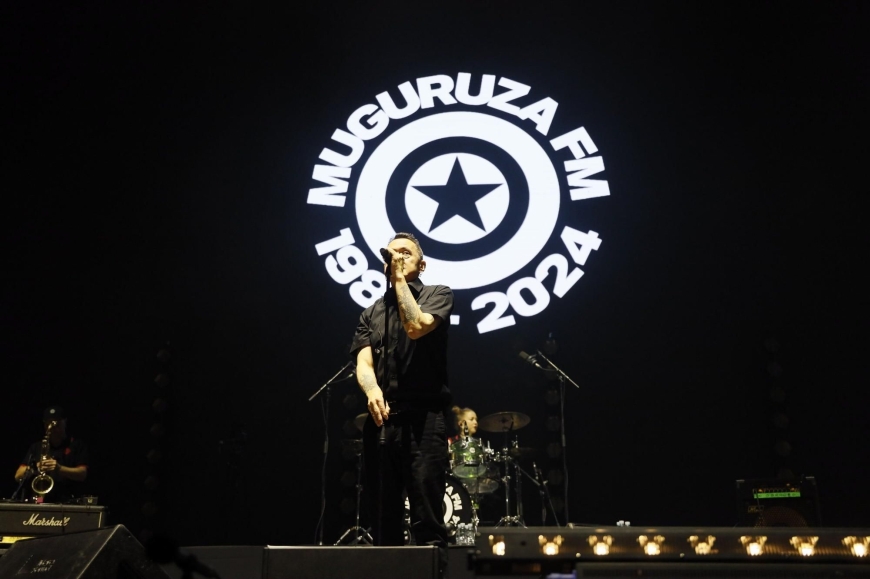
21st century pop and rock
A small stir was caused recently when the Spanish online newspaper eldiario.es revealed "the secret" of the successful debut of the commercial pop group La Oreja de Van Gogh. The album ‘Dile al sol’ (1998) sold a million copies and became a social phenomenon. What had not been known until now is that the group of friends from San Sebastian never recorded the songs on the album. Only the voice of the lead vocalist, Amaia Montero, is the original. Their second album, ´El viaje de Copperpot´ (2000), rocketed the five-member band into stardom, reaping one success after another in radio formulas. After Montero´s sudden traumatic departure in 2007, the former contestant of the TV talent show Factor X, Leire Martínez, took over. The reality is that the members of today´s LODVG are not doing badly at all. Their last LP, ´Un susurro en la tormenta´ (2020), once again reached the top of the charts just like in the old days. In 2024 they hit the road again on a major festival tour. Full house after full house -- from the Sansan Festival in Benicàssim (Valencia) to the Polar Sound in Baqueira-Beret in the Catalan Pyrenees.
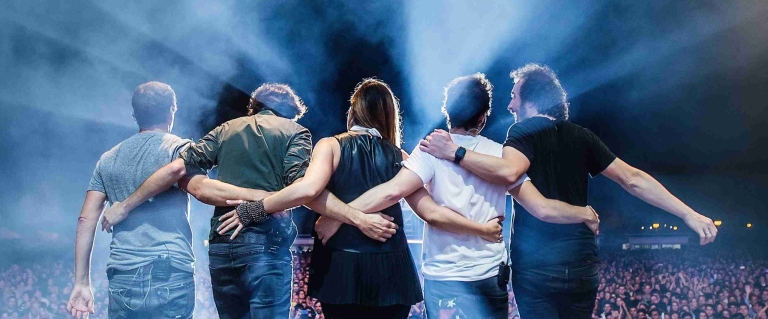
11 June 2022, San Mamés football stadium, Bilbao. A song that has been imprinted in the collective memory is playing: “Después de un invierno malo, una mala primavera. / Dime por qué estás buscando una lágrima en la arena”. (After a bad winter, a bad spring / Tell me why you´re looking for a tear in the sand.) These are the lyrics of ´Soldadito marinero´ a song by Fito & Fitipaldis that has more than 160 million streams on Spotify and is chanted in unison by 45,000 people. Anything is possible around their charismatic frontman, around Fito Cabrales: thousands of old rockers and entire families share cathartic nights of rock and roll. Until not so long ago, playing in large sporting venues was reserved for big international stars: AC/DC, Bruce Springsteen, Muse, Coldplay, U2. Fito has joined the club of pop and rock mastodons.
The breakup of Berri Txarrak in 2019 orphaned thousands of fans who faithfully followed a hard rock band that knew how to evolve and connect with a wide fan base. Their leader, Gorka Urbizu, took a long time of reflection to decide which path to follow. He put his career on hold, disconnected from the outside world but later managed to regain his inspiration. At the beginning of 2024 he has surprised everyone with the release of his first solo album, the delicately crafted folk album ´Hasiera Bat´. Urbizu is filling medium-sized venues with subtlety beautiful music.
Zea Mays and Gatibu are the flagships of Basque rock. Both are bands that came to prominence at the dawn of the 21st century and are regulars at music festivals and local festivities across our towns and villages. They are everywhere and loved by a wide cross-section of society. If the power of appeal is measured in major concerts, we mustn´t fail to mention En Tol Sarmiento. The festive ska and pop group from the Rioja Alavesa unleashes passions. In March 2025 they´ll celebrate their 20th anniversary with three consecutive performances at the BEC – yet another demonstration of their enormous appeal among the public. Another mass phenomenon.
The new crop
Some sing from the heart, others are more carefree, steering clear of politics or angry discourse. Above all, they portray a generation committed to self-management and to blurring genres without a second thought: commercial pop, hip hop, trap, electronica, reggae... They sing mainly in Basque, but they are not only distinguished by their use of the language. They reflect the yearnings, doubts and a change in music that began with the millenials and has taken hold with the radical eclecticism of Generation Z. Bulego, Zetak, Izaro and the members of the Chill Mafia collective are the uncomplicated stars of our time. Much like the titans of Basque music, they have a powerful impact on audiences.
Let´s begin with Chill Mafia. The most groundbreaking. The most incorrect. A breath of urban music fresh air in pure Basque; the mixture of Basque and Spanish that is generally heard in the spoken language. The young collective from the Txantrea neighbourhood of Pamplona became known in 2021 after their daring version of a folk song by poet and singer-songwriter Xabier Lete, ´Gazte arruntaren koplak´. The song went viral. The group uses synthesizers auto-tune, composing generational hymns for Basque youth. One of its members, Ben Yart, also tried his luck as a solo artist. In his songs he openly expresses his relationship with drugs and frenzied nightlife. He forges ahead, hiding nothing. And his brutal honesty, with more of the former than the latter, attracts festivals like BBK Live (Bilbao) or the mastondontic Primavera Sound in Barcelona. Their concerts sell out.
Between Bulego, Zetak and Izaro there are a series of common threads: musical openness, ambition and an unambiguous commitment to pop music as a form of expression. Since Bulego and Zetak both became known in 2019, their ascent of has been spectacular. Bulego have been compared to Coldplay for their ability to produce colourful, funky songs for all audiences. Pello Reparaz, from Zetak, is a tireless guy who has released three albums in five years. Born 34 years ago in Arbizu, Navarra, he has an amazing ability to fuse genres, venture into different styles and captivate the public. His latest experiment is entitled AAZTIYEN, a riotous and markedly innovative album.
Izaro belongs to a brilliant breed of Basque women born in 1990 who are breaking down barriers and creating accessible, quality music. Izaro Andrés Zelaieta reinvents herself with each album and adapts her music to changing trends.

